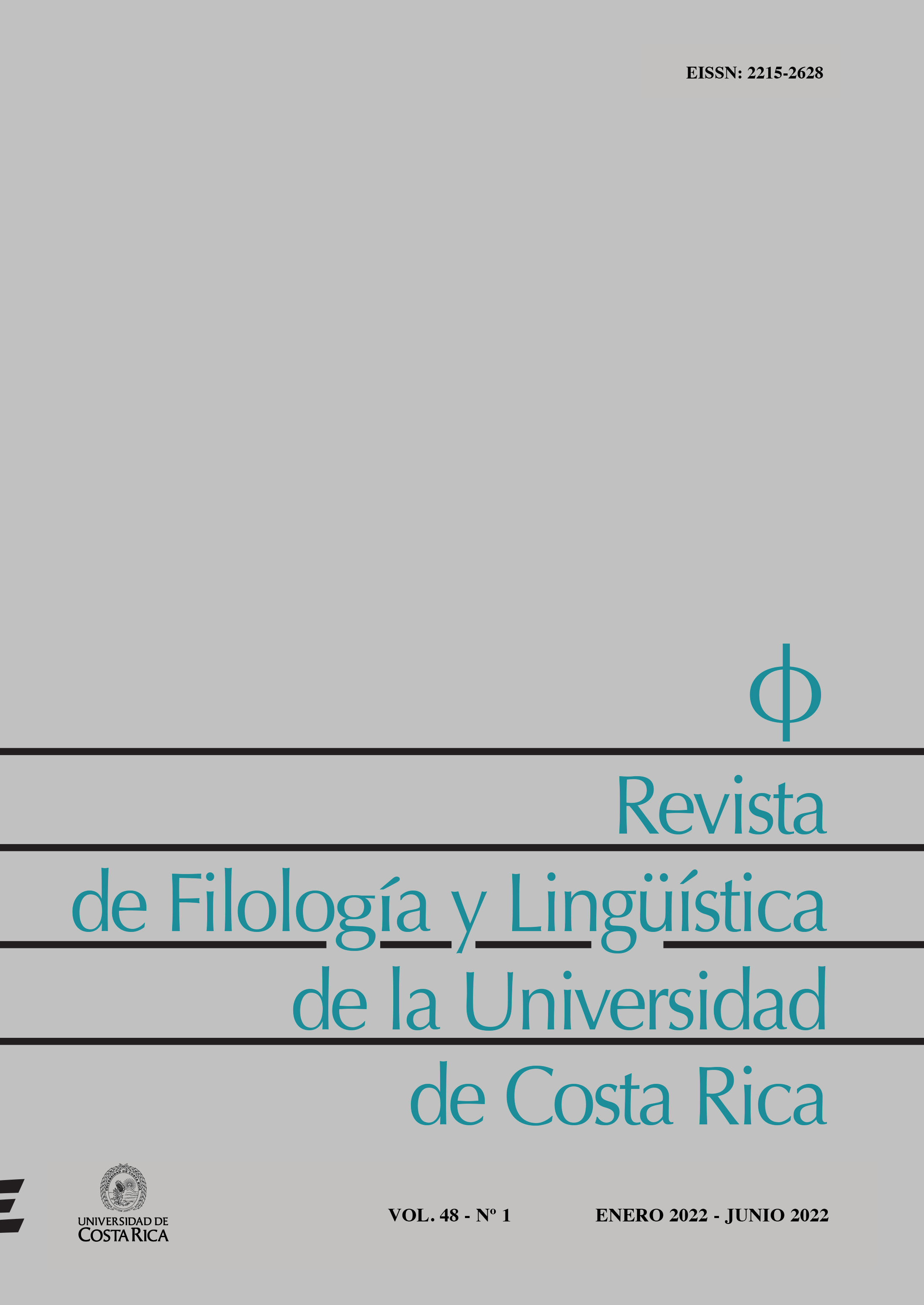Abstract
This article elaborates a reading of the novel by Patricia Laurent Kullick, El Camino de Santiago (2003), from the topic of the journey that is problematized in the story. The analysis is made from Michel Foucault’s (1972) proposal around the depiction of The Ship of Fools, emblematic of a certain madness that travels and arouses imaginaries around its manifestations. Later, this image of the ship of fools will be enriched with Deleuze's (2015) proposal, and his notion of the fold, which the author relates to the ship of fools analyzed in The History Of Madness. Based on the notion of fold, we will analyze the supposed schizophrenia of the protagonist of El Camino De Santiago, a "disease" that takes a metaphorical form allowing us to explore a sense of madness as an escape, but above all, as a trip to the inner self and the exterior of the world, or of herself, since madness is conceived as a liminal experience.
References
Alemany, C. (2016). Narrar lo inusual: Bestiaria vida de Cecilia Eudave y El animal sobre la piedra de Daniela Tarazona. Romance Notes, 56(1), 131-141.
Deleuze, G. (2015). La subjetivación. Curso sobre Foucault. (Tomo III). Buenos aires: Cactus.
Díaz, E. (2005). La filosofía de Michel Foucault. Buenos Aires: Editorial Biblos.
Felman, S. (1978). La folie et la chose littéraire. Paris: Editions du Seuil.
Foucault, M. (1972). Histoire de la folie à l`âge classique. France: Editions Gallimard.
Foucault, M. (1977). La casa de la locura. En F. Basaglia y F. B. Ongaro (Eds.), Los crímenes de la paz. Investigación sobre los intelectuales y los técnicos como servidores de la opresión (pp. 135-150). México: Siglo XXI Editores.
Foucault, M. (2001). Dits et écrits I. 1954-1975. Paris: Editions Gallimard.
García, L. (2010). La representación de la identidad individual en la narrativa mexicana de los albores del siglo XXI. Agathos:An International Review of the Humanities and Social Sciences, 1, 127-137.
García-Valero, B. (2020). Los trazos en el cuerpo, el cuerpo a trazos. Imaginario, lirismo y alteridad interior en la narrativa de lo inusual escrita por mujeres. Brumal, 8(1), 17-34.
Gros, F. (2000). Foucault y la locura. Buenos Aires: Ediciones Nueva Visión.
Hounie, A. (2013). La construcción de saber en la clínica. (Tesis doctoral). Universidad Complutense de Madrid.
Laurent, P. (2003). El camino de Santiago. México: Biblioteca.
Martínez Díaz, M. (2018). La locura como posibilidad de sublevación en El camino de Santiago (Patricia Laurent). En N, Mékouar-Hertzberg y S, Urdician (Eds.), Histoires de Folles. Raison et déraison – Liaison et déliaisons (pp. 85-108). France: Editions Orbis Tertius.
Palaversich, D. (2004). El camino de Santiago y la esquizoescritura de Patricia Laurent Kullick. Ciberletras: Revista de crítica literaria y de cultura, (11).
Parra, E. A. (2004). El lenguaje de la narrativa del norte de México. Revista de Crítica Literaria Latinoamericana, 30(59), 71-77.
Tarazona, D. (2014). Los cuerpos insólitos en tres novelas de escritoras mexicanas contemporáneas. En F. J. Ordiz Vazques (Ed.), Estrategias y figuraciones de lo insólito en la narrativa mexicana (siglos XIX-XXI) (pp. 176-196). Bern: Peter Lang.
Valero J. E. (2016). En la brevedad del cuerpo y de la escritura: El camino de Santiago, de Patricia Laurent Kullick. Revista de Literatura Mexicana Contemporánea, 23(68), 87-101.
Villarreal, J. (2008). La razón vacía: El camino de Santiago de Patricia Laurent Kullick. Revista Replicante, (15), 119-123.


